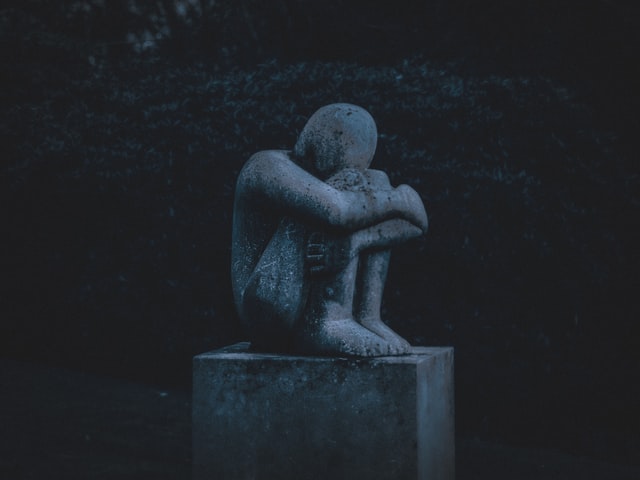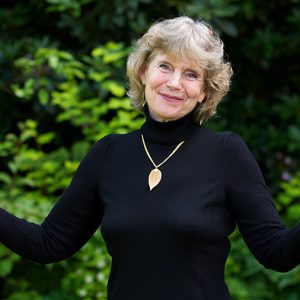Grief, a Fierce but Benevolent Teacher

Grief is a very normal part of being human, for life is a constant dance of change. Every thought, every feeling, every breath, and every sensation dies into the next. And one day, every object and being you care about will not be here, including you.
If you love someone you will grieve them when they are gone or, if you’re the one who is dying, you’re going to grieve that you are leaving. And we all carry the grief of having lost connection with the innocence, aliveness, and openness we knew when we were very young.
But we truly suck at meeting grief.
The world has had two years of loss after loss after loss. 1 million people have died of Covid in the US, although it is believed that the numbers are much higher. And the death of a loved one ripples out to family members and friends near and far. So there are millions of people who have first-hand experience of the heart-wrenching grief that Covid brings in its wake. It is also estimated that over 200,000 children have lost a parent to Covid, and some have lost both.
It is not only deaths we are grieving. It is the grief of children who have lost the social network of school and so many of our children’s anxiety and depression has increased dramatically. It is the loss of actually hugging and communicating in person with our friends and families. It is the deep isolation that Covid has brought to so many of us. It is the startling realization that maybe life isn’t as controllable as we thought it was.
We are a society that is grieving.
Our grief includes everyday losses that wake up our slumbering sadness, for life is oftentimes not the way we want it to be. You get the flu, and you are unable to go to the concert you have been waiting for; your favorite plant dies, your friend won’t return your call and you really need them; a beautiful piece of land is bulldozed for a parking lot. While these kinds of losses are not as devastating as the big losses, they accumulate and pry the lid off the deep sense of loss we all carry.
So even though Covid numbers are down (although they are forecasting another wave this fall), the grief we are so good at ignoring is still here inside of us asking, inviting, cajoling, and even demanding that we create a healing relationship with it.
What would happen if you weren’t afraid of loss and grief? What would happen if you understood that these so-called terrifying experiences come carrying gifts that you will gather when you can simply acknowledge and be with your grief?
The first step in creating a healthy, healing relationship with grief is what we’re doing here – simply acknowledging that you, like everyone else, carry a lot of grief. The second is to create a new kind of relationship with grief, one where your primary interaction is to listen, for our grief wants to be heard. But we aren’t very good at this. Instead, we try to keep it at bay by stuffing it deep inside and staying as far away from it as we can through busyness, compulsions, and the endless game of fixing ourselves.
And yet meeting our grief rather than running away is where the doorway to healing lies. I can remember many years ago saying to the woman I was working with, “If I acknowledge my grief, I will never stop crying.” It took me a while to recognize that the exact opposite was true. If I resist my grief, at some level, I am always close to those tears. But if I acknowledge it and treat it as if it were my only child, the wave of grief comes and the wave goes, leaving me spacious and light.
If it’s too scary to listen to your grief, as it was for me in the beginning, find someone who will listen to you without interrupting, without giving you advice. If you can’t find a friend that is willing to do that, find a professional, for your grief longs to be heard. And the more you are heard, whether by yourself or another, the more you realize it is okay to be you and it is okay to be exactly where you are, including in grief.
The more you listen to yourself, the more you can be with other people who are experiencing grief. Mostly, we are uncomfortable around people who are grieving because we are so afraid of the loss it represents. So we give them platitudes like it’s going to be okay or we tell them the expiration date on their grief has come and gone so now it’s time to stop grieving. Grief is a living process that will always be with us and will always be changing. And just like your grief wants to be heard, people who are experiencing a lot of grief need to be heard too. They need to feel seen and be acknowledged so they can know it is okay that they are exactly where they are.
We are finally getting that grief is nothing to be ashamed of or afraid of. Instead, it is our fierce but benevolent teacher! As you can learn to dance with grief as it comes and goes, all of life becomes more livable as you deepen your compassion and increase your resilience.





Thank you Mary for the topic of grief. It’s not something that is really spoken about. It’s so important for us to know it is ok to feel our feelings or have safe places to do that. It’s not easy because most people around you want you to stay strong or get over it.
Sending you a morning hug for all the work you have put into this lifetime of becoming the best human being you could Mary💜
A warmest hug back to you! Thank you.
River of Sorrow
by Todd Nigro
Drinking from the waters of sorrow
sustains a different kind of life.
This river is hidden
from the rest of the world.
Tears drip from my chin and fall into
an endless flow of liquid love.
This river sparkles with beauty.
The freedom of Peace & Love always, Sky Ann
I really like that poem!! Thanks for sharing it.
Mary,
Let this also be our Independence Day. Freedom within ourselves as a gift of grace from God.
Yes! Let it be!
Mary,
The timing of your article showed up when I most desperately needed to hear your message. My brother died on July 2. My daughter and I spent days on bedside vigil. Today my feelings let go and I didn’t know how to deal with the loneliness and grief. I thank you so much for assistance through this process. It is so helpful and I will pass it on to my daughter.
PS
I very much enjoyed you on Claretha’s ‘Sovereign and Strong’ video series a couple of years ago. You spoke my language, so clear and ‘down to earth’. I will always remember your delightfully delivered messages on that series.
It warms my heart to know my words helped you in your time of grief. My condolences for your loss. Hugs!
Stunning! Thank you, Friend!
You’re welcome, friend. Be light!
Really awesome. I am grieving for my son ( one year tomorrow ) and have felt very isolated doing so. It feels like everyone is moving on but I am feeling lost in the process of grieving.
This piece has helped a lot. Thank you
I’m so glad to know the blog helped you. I’m very sorry for your loss.